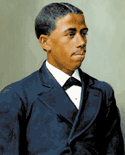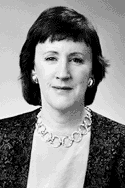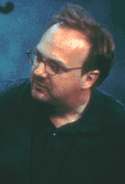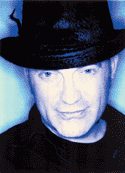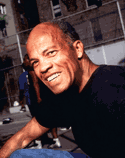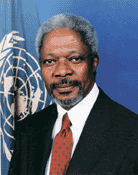
|
|
||
The Yale Alumni Magazine is owned and operated by Yale Alumni Publications, Inc., a nonprofit corporation independent of Yale University. The content of the magazine and its website is the responsibility of the editors and does not necessarily reflect the views of Yale or its officers. |
A series of events on September 18 marked the 150th anniversary of the birth of physicist Edward Bouchet, Class of 1874, ’76PhD, the first African American to graduate from Yale and the first to earn a PhD anywhere. At the celebration, Yale chemist Dieter Soll and Freeman Hrabowski III, president of the University of Maryland, Baltimore County, were honored with Yale Bouchet Leadership Awards for encouraging minority students to pursue graduate education. Said Hrabowski: “We must see minority students as future Bouchets … and get them involved in research.”
On October 1, veteran journalist Cornelia Dean, science editor of the New York Times, gave an overflow audience of students and faculty at the School of Forestry and Environmental Studies advice about improving communications between scientists and the wider world. “There’s a need for debate about important issues from stem cell research to climate change to be informed by science,” says Dean, author of Against the Tide, an examination of coastal erosion and conservation. “But if you want to change the public discourse, you have to initiate the conversation.”
When Jimmy Fallon of Saturday Night Live told his parents he was playing Yale, they said “Yeah, in your dreams.” Or so Fallon told a sellout crowd in Woolsey Hall on September 13. Before entertaining the crowd with standup comedy, impressions, and song parodies, Fallon began by complying with a request that he give a “shout-out” to the lightweight crew. “I really am at Yale,” he laughed. “It’s the first time I’ve ever done that.”
At an Ezra Stiles College master”s tea on September 28, film director George Hickenlooper ’86 talked about getting started in the movies. Hickenlooper, whose new film The Man From Elysian Fields was called “one of the year’s best” by Roger Ebert, encouraged students to reject the detachment of postmodernism and strive for “honest emotional connections” in their movies. Asked how he got Mick Jagger to appear in his movie, he said Jagger called him ten days before shooting to say he liked the script and would like to talk about it over dinner—in Venice. “I had been to Europe before, but never just for dinner,” he said.
“This may sound a bit corny,” warned Tad Low ’88 at a Saybrook College master’s tea on September 30, “but I want to elevate everyday people to realize their own inner celebrity.” Low was explaining the philosophy behind Pop-Up Video, the VH1 television series he created that shows music videos along with captions that reveal the tricks and tantrums behind them.
“When I’m writing well, sometimes the room is full of voices,” said John Edgar Wideman at a Calhoun College master’s tea on September 25, comparing his creative process to storytelling at a family gathering. Wideman, the author of The Cattle Killing and other books, spoke of the importance of hearing Joseph Heller speak when he was an undergraduate at the University of Pennsylvania—and then meeting him again 25 years later in England. “Maybe I’ll meet you in 20 years on a platform in Timbuktu or on Venus,” he told the students. Close-Up
United Nations secretary-general Kofi Annan could have been forgiven for putting off his October 2 address at Yale, since the U.N. was involved in serious and complex discussions about Iraq. But Annan, invited to Yale by the Center for the Study of Globalization, spoke about the need for “inclusive globalization” to 1,100 people in Battell Chapel and another 500 watching a simulcast in the Law School auditorium. Annan said that globalization for a time seemed to be working so well that “underlying schisms were ignored in the belief that the rising tide of material growth would eliminate the importance of political differences and social grievances.” But he said he believes that people and nations must work together to ensure that everyone benefits from new global connections. “Either we help the outsiders in a globalized world out of a sense of moral obligation and enlightened self-interest, or we will find ourselves compelled to do so tomorrow, when their problems become our problems in a world without walls.” Audience questions focused on Iraq, the International Criminal Court, and AIDS. Speaking of the impact that the AIDS epidemic has had on his home continent of Africa, Annan said, “It’s killing the most productive people in their prime. In some countries, it’s killing teachers faster than they can be replaced.” |
|
|
|
|
|
|
|
|
©1992–2012, Yale Alumni Publications, Inc. All rights reserved. Yale Alumni Magazine, P.O. Box 1905, New Haven, CT 06509-1905, USA. yam@yale.edu |
||

